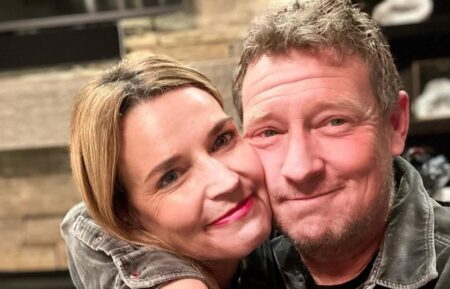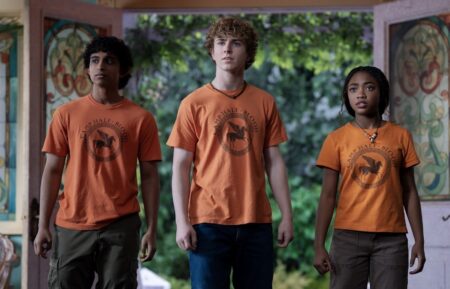‘The Girl on the Milk Carton’: Murderer’s Ex-Wife & Detective Address Shocking Missing Child Case
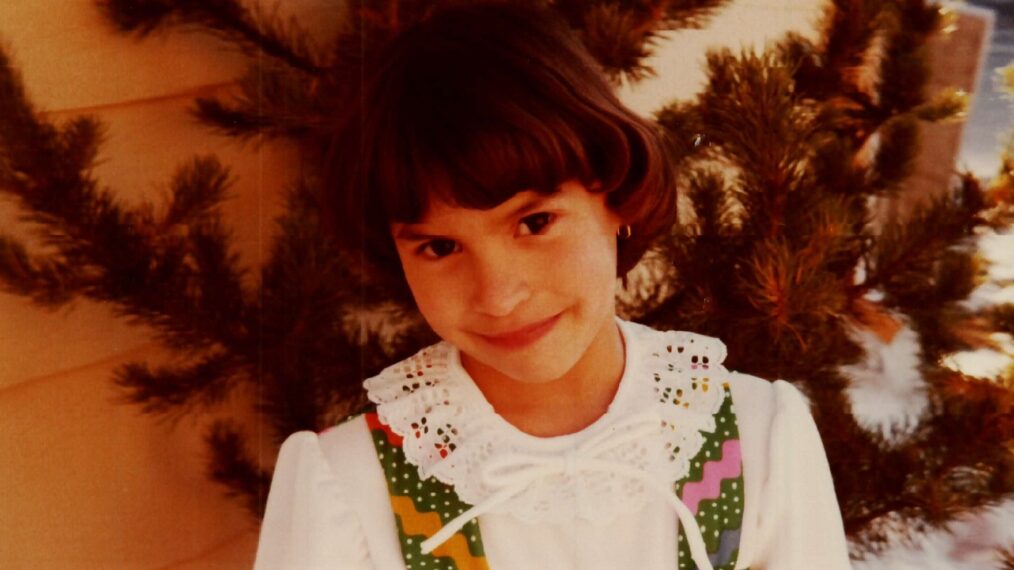
Q&A
Jonelle Matthews went missing from her family home in Greeley, Colorado five days before Christmas in 1984. The 12-year-old’s disappearance sent shockwaves through the small town with the heartwrenching story reaching all the way to the White House. President Ronald Reagan brought Jonelle’s search into the national spotlight as she became among the first in a newly-launched missing children milk carton campaign.
Sadly, it would take almost 40 years for the loved ones of the young girl to find closure. The story is told in the two-part Oxygen docuseries The Girl on the Milk Carton. Jonelle’s disappearance became a cold case, but that all changed in 2019 with a grim discovery 20 miles from her home. Found human remains turned the missing person case into a murder investigation.
The breakthrough in the case was largely in part due to a woman named Angela Hicks who had suspicions about her abusive husband Steve Pankey. Together with Detective Robert Cash, a former classmate of Jonelle’s sister, they helped link the death to Pankey, who was ultimately found guilty of kidnapping and murder in 2022. He is currently serving life in prison with the possibility of parole after 20 years. Here, Hicks and Cash open up about the case.
Angela, you’ve had to relive the trauma and abuse from Robert over the years in different settings. Did you have any trepidation about whether to participate or not? What was it like to sit down for this project?
Angela Hicks: After Steve was found guilty, I was able then to speak with [Jonelle’s sister] Jenn [Mogensen] on the phone. She very much wanted to do the project. She asked me to speak to the producer (Michael Sheehan). I told Jenn that I did not want to detract from Jonelle’s story by interjecting the many facets of what was happening in my life. Jenn said to me point blank, “Angela, you are Jonelle’s story. I think it is so important for people to understand.” At the trial, I was told not to make prejudicial statements or reveal any past bad acts.
So the information was limited. I spent hours on the phone with Michael Sheehan and got a good vibe from him and that he was attempting to do a high-quality documentary about Jonelle’s life and the case. It was scary for me to do the filming. The Wild Dream Productions crew was amazing. I felt that I was respected and that it went well. I have not seen the finished documentary. Yet, I believe my trust was well placed. I also had concerns that my son would not understand my participation in this. Steve Pankey keeps saying “vindictive ex-wife, woman scorned” neither of which is true. My motivation is for the truth to come to light.
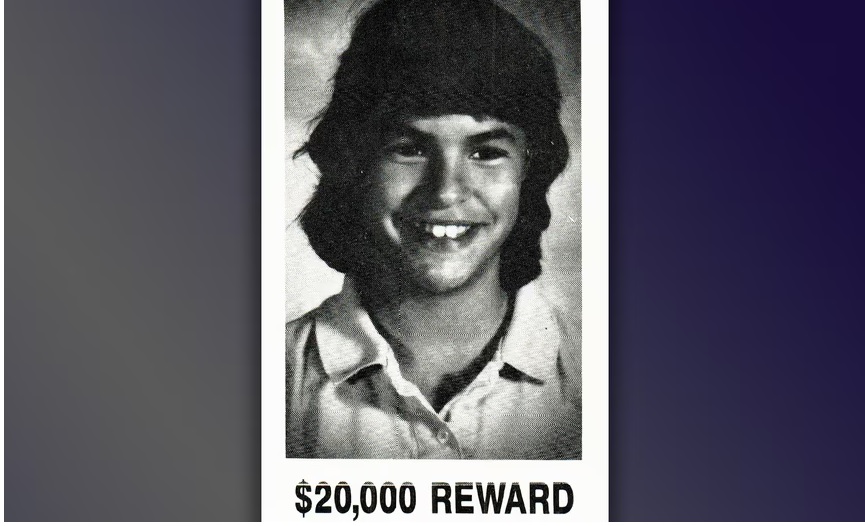
Oxygen
Robert, you had a family connection and worked on the case since 2013. How was it for you to look back on the investigation? Was there anything eye-opening from reflecting on this case?
Robert Cash: Looking back on this investigation I learned several important lessons: Never give up; don’t forget to look beneath the surface; know your case, and most importantly, never forget that your victim comes first. I inherited this case 30 years after it happened. I hate to say it, but a case of this vintage might easily collect dust on someone’s caseload. Knowing the family provided me with the extra resolve to stick with the case and treat it as if it happened yesterday. Every day I thought of the case; how I could look at it differently; and what angles could be used. When I first contacted the Matthews family and told them Jonelle’s case was mine, I pledged unwavering attention.
I’m sure they had heard that from others before me, but I was steadfast in this promise. In the initial reviews of the reports and evidence, the eye-opening reality was it was in complete disarray. I found recordings of interviews that hadn’t been converted to reports. I found polygraph exams that hadn’t been properly documented. I found several people had not been interviewed either properly or at all. Early on, the FBI was brought into the investigation.
Their investigation lacked organization. Probably the biggest eye-opener was how quickly this case lost attention not much more than a year after Jonelle’s disappearance. It’s hard to point fingers, but in this line of work the realities are stark: People promote. People change assignments. People acquire other pressing cases that take priority. These realities are the enemies to high-value cases that cause these cases to go “cold”. Jonelle’s case is no different. In my case, I believe having a connection to the family removed these obstacles. I chose to remain in investigations and to continue to work on Jonelle’s case. It became my priority.
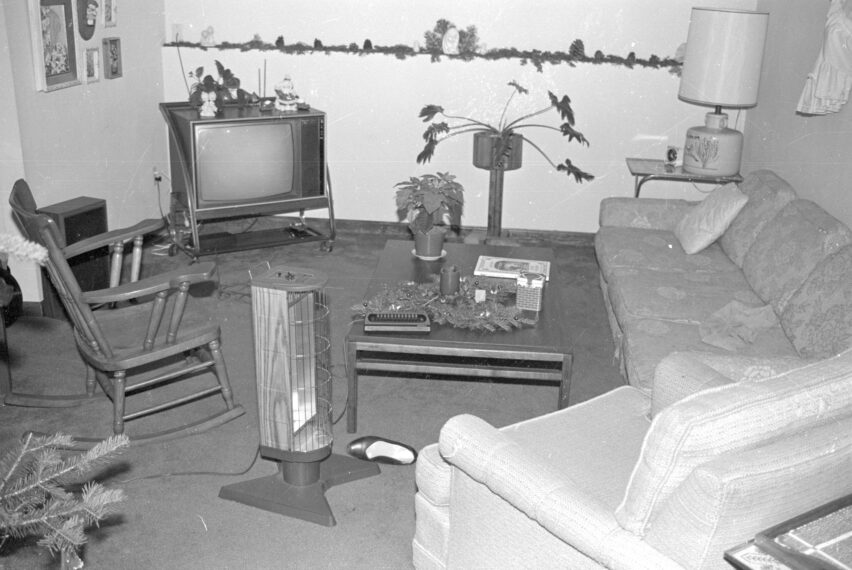
Matthews family living room. (Oxygen)
Robert, there was a point where Angela provided her findings at the house to be investigated in 1999, but the case looked to have stalled for so many years. Angela didn’t hear back for so much time. Why was that?
Robert: When I first met Angela Hicks, I was taken aback by her immense knowledge of Jonelle’s case as well as her intense suspicion of Steve Pankey. This was enhanced by the fact that Angela contacted law enforcement in Idaho in the late 1990s. Angela did her due diligence and believed her efforts would bring light to her suspicions. She disclosed how she met with the Sun Valley police in Idaho and how they memorialized her statements and materials.
I’m sure she felt comforted by the belief that these were forwarded to the Greeley Police Department for further review. Unfortunately, she never heard back from the Greeley Police Department. In my investigation, I spoke directly to the Sun Valley police personnel from that time. They remembered the discussions with Angela as well as sending the materials to the Greeley authorities. My interviews with the Greeley officers from that time were not fruitful. To this date, there is no explanation as to whether the materials made it to Colorado or not.
Why do you think Steve decided to run for public office when he was under suspicion? Was it about hiding in plain sight?
Angela: I believe Steve is a narcissist. I believe it was for attention and power.
Robert: Steve Pankey’s flat efforts to run for public office were asserted out of pure narcissism. Pankey thumbed his nose at law enforcement and those who in his eyes wronged him in some way. His strategy has always been to gaslight his adversaries into submission. To a certain extent, his methods were successful. Going straight to the lion’s den paid off for him. He was able to deflect attention away from him by pure and unadulterated gaslighting.
Angela, how would you describe all those years after your divorce from Steve? Did your children have any idea what you had been through? How have they responded to everything?
Angela: It was such a relief to finally be divorced and to go on with my life without being in a coercive, violent relationship. Steve’s tactics were not to intimidate or badger me, he made all attempts to financially ruin me instead. At the time of the divorce, neither of my sons wanted anything to do with their father…this was entirely their choice. The boys knew of the control and violence I experienced but did not know about the situation regarding Jonelle. As we got older, the family dynamics changed when Mark, my oldest son, married, and then shortly thereafter Carl, my youngest son, was murdered [In a totally unrelated case, he was shot dead by his girlfriend in Phoenix in 2008].We still have sporadic interactions between us though. We participate in family dinners during Thanksgiving and Christmas.
You met Jonelle’s parents just a few months ago. Tell me about how that experience.
Angela: I met the Matthews in May of this year. At the trials, we were not allowed to interact with other witnesses. Our eyes would meet as we passed each other, and it felt heartbreaking not to be able to say anything to them. I met the Matthews in the morning. It was like a reunion with long-lost friends. They brought me flowers and a dozen fresh eggs from their chickens. We visited for a few hours and then went to a Mexican restaurant for an early dinner. And then visited some more. The eight hours we were together seemed like just an hour. The time passed so quickly. We were able to ask questions and relay answers. Before parting, we were able to pray together. They are such lovely people!
How would you describe your life today?
Angela: I have always worked hard and still do. I am 66 years old and look toward my retirement. I have built a strong business in a resort area, which I hope to realize some value from to put toward my retirement. I have written my memoir over the past five years, which I hope to publish. I want to spend time doing art and writing. I want to get a greenhouse for my farm. I bought a 10-acre farm 10 years ago, and I like the seclusion and the country. I grew up on a farm in Iowa. I am a low-key person and simply hope for peace and happiness.
What do you want to say to viewers of the documentary? What do you hope they take from this?
Angela: First of all thank you for listening to my side of the story. I hope that this documentary fully honors Jonelle Matthews’ short life. And honors her family. To remind people that life can change in an instant and to take nothing for granted. I hope there is some awareness among law enforcement to take seriously the people who reach out to them. My initial interaction with Greeley Police in the 1990s was apples and oranges between my interaction and being contacted by Det. Cash in 2019.
Robert: To be able to relay my concerns was like having the weight of the world off my shoulders. Lastly, I hope that in relaying my story I can give hope to domestic violence – coercive control victims….and maybe have said something that will save someone from making the same mistakes I did.
It’s my hope that viewers take to heart the fact that there are some exceedingly bad people in the world who might be our next-door neighbors, people who go to our churches, people who play with our children. If your intuition bells go off about someone it means something. Intuition is our very own built-in radar. If you have a bad feeling about someone or some events don’t dismiss it. Tell someone. And, maybe most importantly, I want the current law enforcement professionals who may watch to pay special attention to the witnesses in their cases who convey these intuitive accounts or the possible suspects that give you a bad, uneasy feeling for no good reason.
Steve Pankey was this kind of person. He was dismissed by law enforcement as someone who wasn’t a serious suspect a couple of weeks after Jonelle Matthews disappeared. This is precisely when he began tapping the shoulder of law enforcement saying, “Here I am. Come and get me.” Thankfully, when Jonelle’s remains were found Steve Pankey continued his taunts one last time.
The Girl on the Milk Carton premiere, August 25, 7/6c, Oxygen






